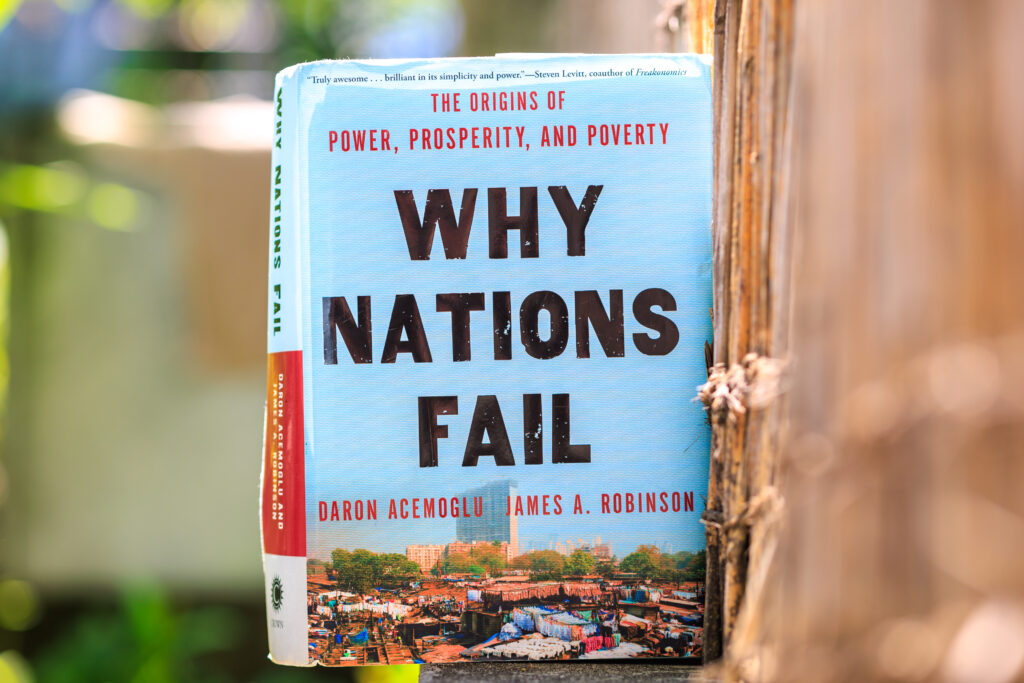
Associate Professor Gabriel Fuentes Cordoba of the Faculty of Liberal Arts examines how different land use, management and ownership systems affect the lives of people through careful analysis of causal relationships based on data, statistics and surveys. He says an accumulation of studies from various perspectives can contribute to devising policies aimed at solving land issues.
The global financial crisis that started in 2007 was what triggered my interest in finance and economics. As I delved deeper into these fields, I found myself immersed in microeconomics, more specifically, the issues related to land use and property rights systems in Latin American countries including my own country, Panama.
In the first project I worked on, my focus was to assess the causal relationship between the types of property rights people have over their land in Panama and their agricultural productivity using various datasets and statistics including plot survey data. The result was, as I expected, higher productivity and investments among the people who had full titles compared to those who did not have full security of tenure.
In the second project, I focused on household economic situations of indigenous people in western Panama where there are different types of property rights: individual and communal. The result of my research showed that people living in the areas where land is owned communally have lower levels of consumption compared to those who live outside such territories. But when it comes to analyzing why it is so, one needs to be cautious about determining if the land ownership style is the main cause as there could be many other factors and confounding variables. For example, it was also found that people living inside the communal land were less engaged in market activities. In addition, public services, including access to water and electricity coverage, are not as sufficient in communal areas, which may be because of the semi-autonomy officially granted by the government. This is used as an excuse for the insufficiency of public investment. It may also be because of little representation of the residents in the government.
In a case like this, it is difficult to point to a single cause given the complexity of a phenomenon where many factors interact. Expanding the scale of my research and focusing on other countries with similar land ownership systems may help improve the generalizability of the analysis.
Well-being of people engaging in community-based forest management in Cambodia

One of the projects I am currently working on also deals with the concept of communality. The subject of research is community-managed forests in Cambodia and the well-being of the people who are managing the forests. One of the indicators of a successful forest management is the mitigation of deforestation, which can be measured by using data from geographical information systems. As one barometer of people’s well-being, I used the data of their food and non-food consumption. Consumption is sometimes a better indicator of well-being compared to income which is more volatile.
So far, my preliminary survey and data analysis has revealed that individual food consumption is improving among those who live in the forests whose resources are managed by the communities. However, I intend to assess other potential confounding variables before establishing causality. I also have yet to analyze how communal forest management affects deforestation that has been accelerating for the last 30 years in Cambodia.
Use of academic findings in policymaking
Land issues have been controversial in Latin America for centuries. Many policies have been implemented to address and prevent inequalities in land use and ownership, but not all of them have proven to be successful. I try to analyze how policies and historical events affected people’s living conditions.
While this type of research may be useful in devising policy recommendations, researchers need to be careful about confounding variables and what they may have missed.
Policy makers also need to be informed that they should not refer to just one study, but rather an accumulation of research when they try to reflect elements of academic findings in policies. I believe that in order to create policies that contribute to people, comprehensive and integrated approaches are necessary.
The book I recommend
“Why Nations Fail: The Origins of Power, Prosperity, and Poverty”
by Daron Acemoglu and James A. Robinson, published by Crown Currency

This book shares case stories of societies that prospered and those that didn’t. It argues that this is due to institutional differences including property rights systems and political systems. The authors used an approach called the new institutional economics, which shaped the type of research I do. Though it was first published in 2013, it still has an impact and helps you understand the status of various societies.
-
Gabriel Fuentes Cordoba
- Associate Professor
Department of Liberal Arts
Faculty of Liberal Arts
- Associate Professor
-
Gabriel Fuentes Cordoba received a B.A. in Banking and Finance from University of Panama, an M.A. and a Ph.D. in Economics from Tohoku University. Prior to joining Sophia University in 2019, he was a postdoctoral research fellow in the Graduate School of Economics and Management at Tohoku University.
- Department of Liberal Arts
Interviewed: July 2023